I strongly believe that the next generation should be empowered and supported in order to make a positive impact on society. I am passionate about sharing my knowledge and experience with the younger generations who will soon be leading and guiding us. But how is that done without becoming blind to my own ideas?
Introduction
The future of our world lies in the hands of the next generation, as it has been so for our generation and the generations before us. But it also lies in our hands to prepare the next generations for what they will encounter by preparing ourselves. If we should expect to be able to share useful knowledge and experience, we need to not only accumulate ideas about being “good” human beings but also need to have daily practices where we integrate the knowledge and experience we want to transfer into the future.
(Don’t be blind to your human skills: New book about “The Enneagram and why your blind type matters”)
The next next generation
I believe that our attention should be addressed not only to the next generation being our children but to the next next generation being our grandchildren. How do we live our lives today so we can become role models for knowledge and experience that can be transferred to our grandchildren?
Without doing anything in particular, we will transfer certain traits of behavior to our children that again will be transferred to our grandchildren, and through generations, we have also received traits from our parents and grandparents that are integrated into the way we live our own lives. But instead of passively accepting that “something” is transferred, my suggestion is to do it actively and with presence, consciousness, and awareness.
How do we support the next next generation?
Some practical questions are how do we transfer helpful knowledge and experience to future generations, and what would be the correct, right, or best “things” to bring forward? A suggestion for the knowledge and experience we could transfer forward could be something like:
- Awareness and presence
- Self-insight and right actions
- Empathy and compassion
- Healthy values and principles
- Acceptance of difficulties and avoidance of “the perfect life”
#1 – Awareness and presence
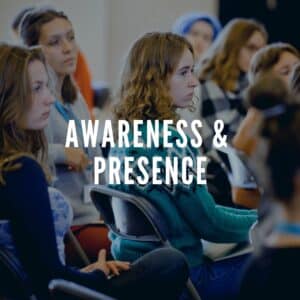
Awareness could also be called “awake” or “alert” and covers any kind of action, that will make you pay attention to what is going on on the inside of you (senses, emotions and thoughts) and outside of you in and among other people. It is the kind of emotional and social intelligence to grow and develop as individuals and collectively.
Presence could also be called “clear mind”, “direct knowing”, “aha-moments” etc. and can feel like a state of flow, where you feel both strong and agile and you know how and when to engage and when not to.
#2 – Self-insight and right actions
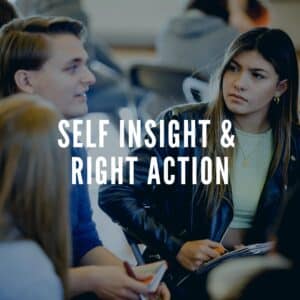
When you have a high level of self-insight you will recognize when your somatic, emotional, and cognitive patterns are controlling your behavior, self-image, and thoughts. That recognition will help you to re-balance yourself and end your repetitive behavior for a while.
When demonstrating “right action” we also handle several mindsets at a time and, among them, find the best suitable action possible for the moment. In the moment we often don’t know if the action is the right one, but when we practice we will learn how to center our selves and find our way to the right action.
#3 – Empathy and compassion
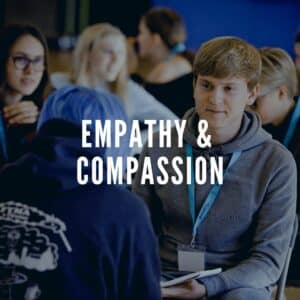
#4 – Healthy values and principles
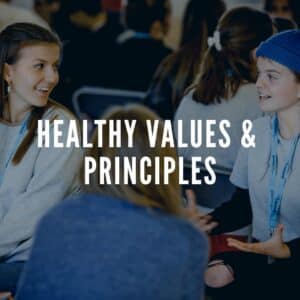
#5 – Acceptance of difficulties and avoidance of “the perfect life”
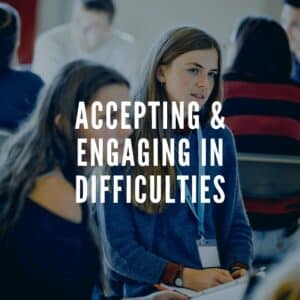
Walking our talk
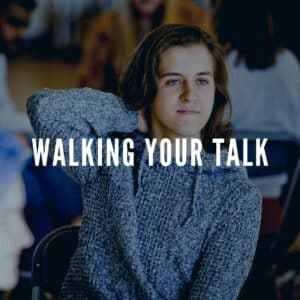
Avoiding being blind to my own ideas
I am making my best effort to take my own medicine and walk my own talk, but how can I be sure that this will also help the next next generation? What test or research could I do to make sure that my ideas about today also will work in both the near and far future?
Every year I teach around 1.000 young adults, and they agree with my 5 suggestions, but what they long for is a place for mutual conversation about those topics. They don’t want to enroll in a “school system” where they have to perform, go to exams, and prepare themselves for more education. What they enjoy are what I in Danish call “samtale saloner” which could be translated into “conversation salons” originating from the educational salons for women before they were allowed to study at universities.
So if we want to transfer something to the next next generations, the solution might be inviting to “salons” where young adults will learn in a more old-school fashion way by engaging in conversations without traditional teaching and performing.
The photos used in the graphics is from a workshop hosted by The Academy for Talented Young People in Denmark. (click here to read more about the collaboration between THINK ABOUT IT and ATU)




